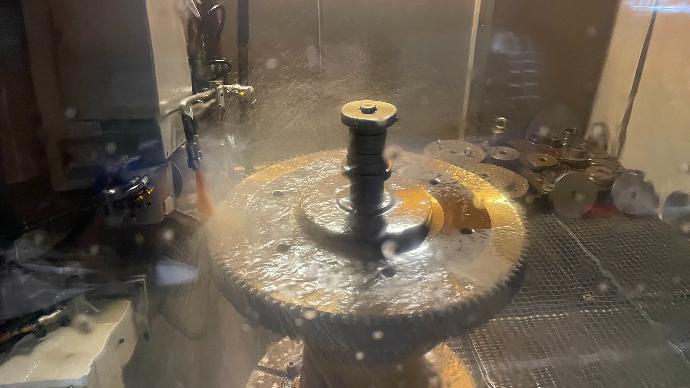
gear grinding process
It is usually the last step of gear fabrication. Gear precision of TYGear can reach
AGMA grade 10
ISO & DIN grade 6
JIS grade 2
Gear grinding is of great importance in the fields of mechanical engineering and manufacturing, as it has a significant impact on the performance and lifespan of gears. Here are the key reasons for the importance of gear grinding:
Improved Gear Precision: Grinding enhances the precision of gears, ensuring the accuracy and uniformity of gear teeth. This helps reduce noise and vibration in gear systems and enhances the efficiency of mechanical transmissions.
Enhanced Gear Wear Resistance: Grinding eliminates surface roughness and defects on gear teeth, increasing the surface hardness of gears, thus improving their wear resistance and lifespan.
Optimized Load Distribution: Grinding ensures the precise shape and size of gear teeth, leading to uniform load distribution between gears. This helps reduce stress concentrations on the gears, preventing gear breakage and damage.
Increased Efficiency: Gears that have been accurately ground experience reduced friction losses, which results in increased efficiency in mechanical transmissions. This is particularly important for high-efficiency applications such as automobiles, wind turbines, and industrial machinery.
Reduced Maintenance Costs: With improved wear resistance and lifespan due to grinding, maintenance costs for mechanical equipment are reduced, as there is a lower need for gear replacement and repairs.
In summary, gear grinding is crucial for ensuring the performance, lifespan, and reliability of gear systems. It enhances gear precision, wear resistance, and efficiency, which helps reduce maintenance costs and ensures the proper operation of mechanical equipment.
If you would like to learn more about, Comparison Table of Common Gear Precision International Standards, please view Support-->FAQs no. 8 or click https://www.tyg-gear.com/faqs